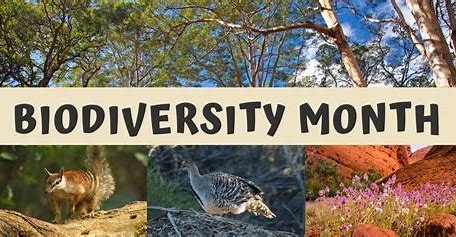
September is National Biodiversity Month.
Biodiversity is the variety of all life forms on earth – the different plants, animals and micro-organisms, and the ecosystems that are their homes.
Here at Merici we are continuing with the Biodiversity Restoration and Re-Wilding Project.
Why does this matter?
Australia is one of a group of only 17 ‘mega-diverse’ countries. These mega-diverse countries cover less than 10% of the world’s area but have more than 70% of its biodiversity.
Many of our plants, animals and places are unique and are not found anywhere else in the world.
Nature is valuable and we need nature. It provides the building blocks for our survival, such as food, clean air, water, and shelter. Nature also supports our health and wellbeing, and our economy.
What can you do?
- Create a natural habitat in your backyard
Look at plants that are native to your region, find out if any are threatened, and help create a backyard sanctuary for local birds and wildlife and extend this to your nature strip.
- Join your local Landcare group
- Take action on weeds
Check out what's considered a weed in your part of the country and how you can stop the spread at weeds.org.au
- Be a responsible pet owner
If you can no longer keep your pet do not release it into the wild. This includes pet fish. Do not flush them down the toilet or put them into local streams. Make sure your cat is de-sexed and either keep it indoors or invest in an outdoor cat run. Domestic cats can have a devastating effect on local wildlife. Keep your dog on a lead when in natural areas.
- Reduce, reuse and recycle
Look at ways to avoid and reduce waste and increase what you recycle.
- Start your own compost bin or worm farm for food waste where you have space
Organic matter (fruit and vegetable scraps) is great for your garden.
- Be careful about what you put down your drains
Oils and chemicals can end up in our waterways and seas and harm animals and plants. Instead of using commercial cleaning chemicals, try using white vinegar and bicarbonate of soda.
- Be an informed seafood eater
Make choices that support sustainability – learn what species are threatened and only buy seafood that is sustainably caught or farmed.
Felicity Maher
Sustainability Officer

